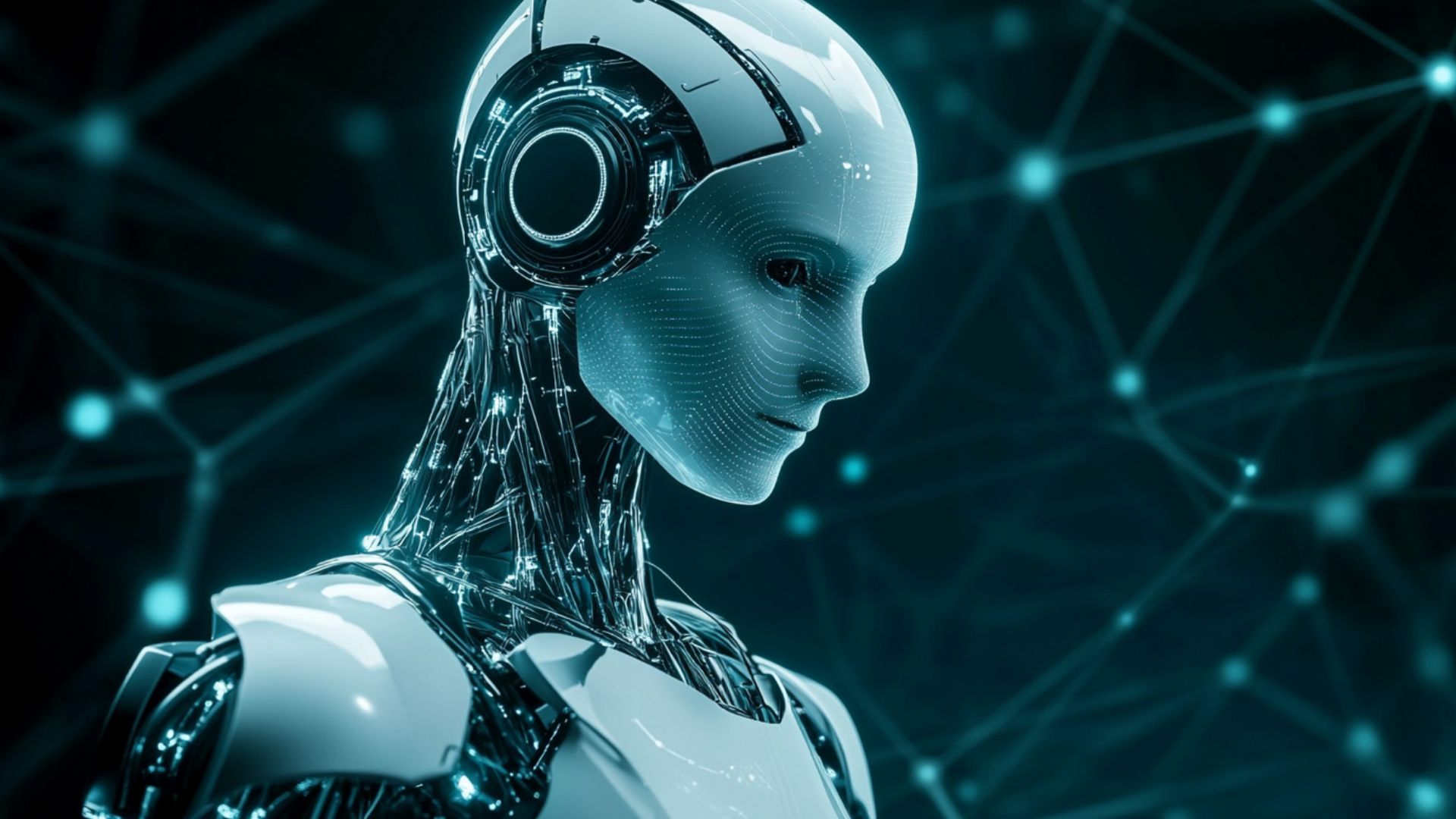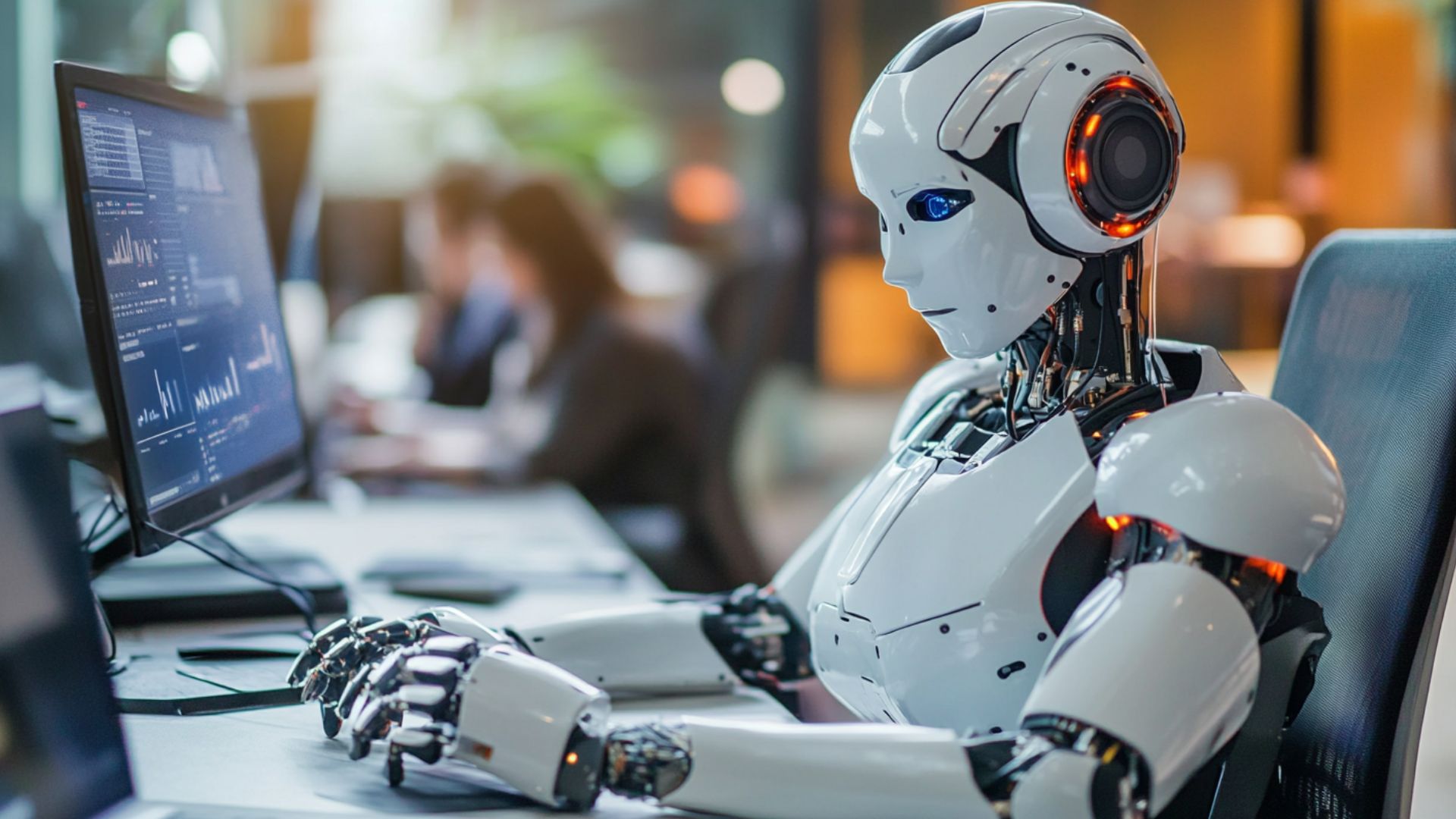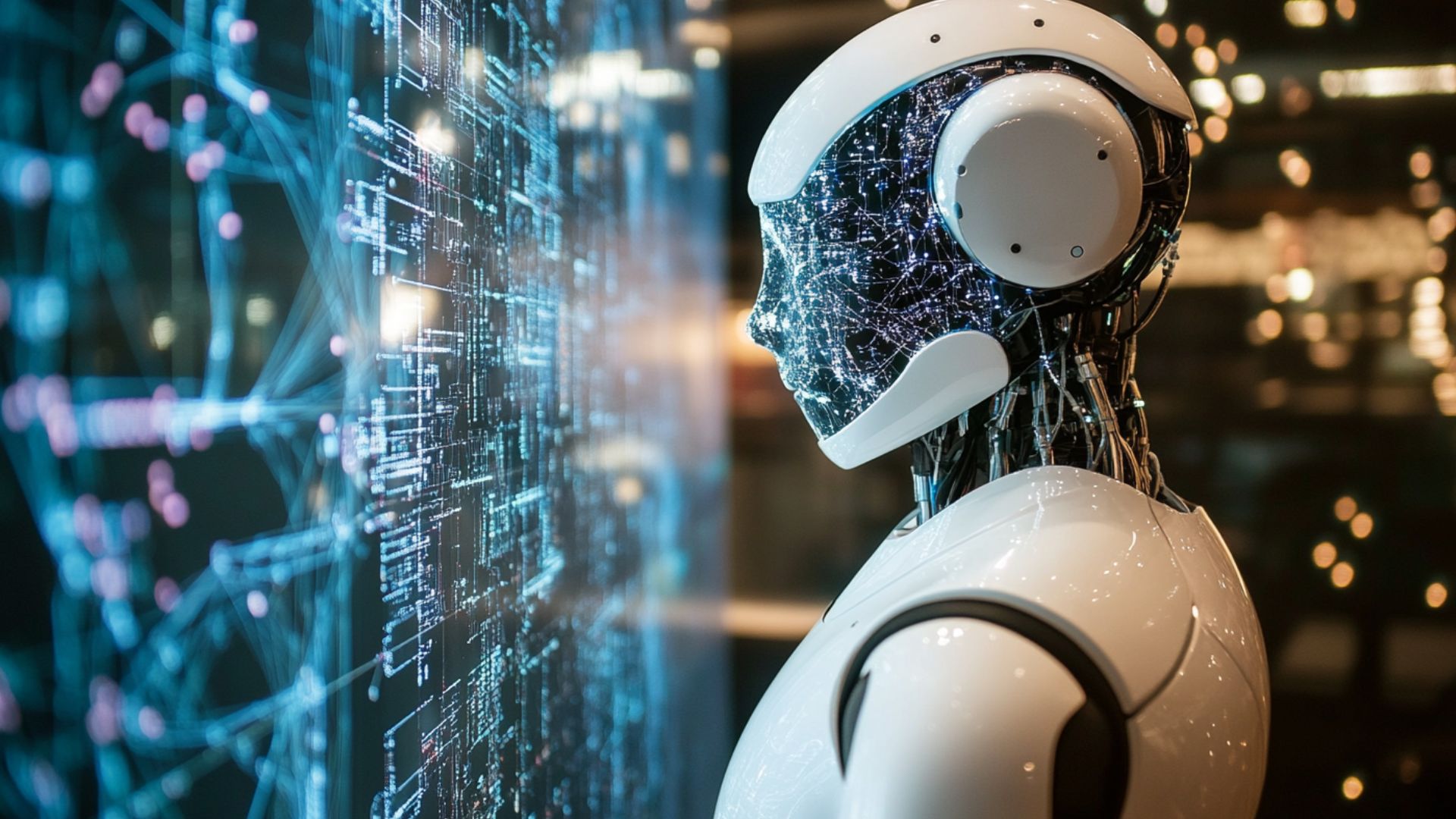AI in Grocery Stores: Transforming the Shopping Experience

AI has many different areas of application. These applications are well-known for improving efficiency and customer and user satisfaction. AI has also transformed retail and commerce. AI implementation allows businesses to streamline the work process and reduce time for both employees and customers. The systems automatically process the payment and withdraw funds from the person's account. With the help of AI, it becomes possible to choose products, avoiding queues and saving time. AI in grocery stores makes it possible to offer different products that may be of interest to customers. The analysis of past purchase histories and human preferences is automatically processed. Another essential function of AI is the ability to analyze what is more relevant and popular on the market. In grocery stores, the data on goods and their demand is analyzed. In turn, employees can know what is missing in the store and what stocks need to be replenished.
The Rise of AI in Grocery Retail
Store AI in the retail industry is essential for the store and for customers. Artificial intelligence is used to optimize workflows and helps to streamline operations. For customers, artificial intelligence has become an ideal option for getting a good experience. Saving time, being able to choose the right product, or suggesting interesting things is important. Another good way to evaluate AI is the possibility of personalization and convenience for customers. These are the main advantages of artificial intelligence in this area:
- Inventory control. AI and its algorithms can analyze essential potential products. Depending on the location, the season, and market activity, a product is selected. Its quantity in stores will be much more significant in meeting the needs of customers. Artificial intelligence grocery shopping allows you to manage the inventory in the store itself. For employees, it is the best option to research which products are currently trending. Customers enjoy a better shopping experience.
- Reduced operating costs. Reducing operational costs plays a significant role in avoiding overstocking. Constant monitoring of AI algorithms makes it possible to understand and avoid product shortages. Minimizing waste allows the industry to develop and meet customer needs. This approach improves efficiency in this area. It also allows us to process orders in real time and avoid problems.
- Improved customer service. Thanks to various apps and chatbots, customers can choose the product they want. Each person makes purchases, and their order history is saved. AI algorithms process past requests and information and offer similar options. AI in stores allows you to get an exciting product and its offer. People also receive various interesting news about promotional products in various apps.
Investing in AI in retail is a necessary process. They help to preserve both the customer experience and optimize some of the work. It becomes possible to enter the new year and maintain leadership positions. Studies show that operating expenses are about 20-40% lower where AI is used.
Enhancing Customer Experience Through Personalization
The study of AI allows us to understand how effective it is. For retailers, its application is essential for a good customer experience. Analytics helps process millions of data points on customers and their interests. It collects information on social networks and the history of various product views or purchases. This analysis offers customers personalized recommendations that may be relevant to them. Some of these customers are really interested in the product and go to buy it.
- Artificial intelligence grocery shopping often has personalized recommendations. When looking for a certain product, the customer pays attention to its quality. It is often possible for a person to access particular recommendations. Programs independently select special products based on past customer data. Often, you can see special recommendations or products that have been purchased. This interaction is a good step towards getting a good customer experience from shopping.
- Retailers often offer certain promotional products. These promotions and discounts are sent to the customer's device or to the app. Based on past purchases, something exciting and relevant is offered. As practice shows, most customers are really interested in products with the goal of purchasing them. Store AI plays a vital role in the personalized customer experience.
Streamlining Checkout with AI-Powered Solutions
One of the most valuable innovations is the ability to save time. In any industry, a fast work process with the ability to save this free time is valued. For the retail sector, saving time for both customers and employees is also extremely important. To get a good experience and feedback, it is essential for customers to make their purchases quickly. By creating special self-service checkouts or automatic cashierless stores. They are entering a new global market leadership and taking good positions. Thanks to such cash registers, many customers can be served in a short time.
- A striking example of such a store is Amazon Go. The use of software, grocery technology, and AI allows the creation of comfort for customers. Employees need to spend their time serving people and doing something else. Customers can make purchases on their own and stand in lines for a long time. Special sensors and cameras analyze the goods chosen by the customer. A person can go to the store to browse and select products in peace and leave the store safely. The analysis of the selected product is instantaneous, and the amount is debited from the account.
- Self-service checkouts are no less exciting and valuable for retailers. This innovation is highly convenient and saves time for both customers and employees. A person can scan the product and pay for it without a consultant. The customer can see the amount of products, how many items they have taken, and all the information.
- AI supermarkets are entering the leading market thanks to its technology. Using Apple Pay or Google Wallet allows a person to pay for a purchase quickly. This process reduces the time spent on cash or change. The amount is withdrawn precisely as the employee named, and you immediately receive a notification.
AI-Driven Inventory and Supply Chain Optimization

Many industries use artificial intelligence and its predictive analytics. It helps to correlate and monitor products. This use helps to minimize waste and calculate market trend statistics. For retail stores, collecting information about current products is essential. With the help of analytics, a particular operation is carried out to optimize processes. AI in grocery retail plays a significant role in profitability and reducing the risk of shortages and overstock.
- Demand forecasting. Keeping track of what customers and shoppers like is essential. Against this background, artificial intelligence can control inventory in real-time. It studies what is relevant and what the majority of the population pays attention to. Unique systems help businesses thrive and avoid wastage.
- Inventory control and replenishment. Constant updates and automation help to control the entire volume of products. Inventory tracking plays a vital role in keeping customers interested. If a particular product is popular in the market, there will be more of it. The amount of stock is also controlled. AI grocery lists are used to ensure that products are always on the shelves. There are automatic orders for new and popular products that are in demand among customers.
- Inventory optimization. Artificial intelligence allows you to track the expiration of products. Inventory optimization is a good reason to maintain profitability and relevance. Tracking which stocks are selling less will enable you to do something with them. Setting up special promotions and offers in the app for customers is the best option in this case.
Improving In-Store Navigation with AI
A significant advantage of artificial intelligence is the ability to coordinate people. Stores are different, especially if they are hypermarkets; they are large. Often, when finding a product, there are questions about where it is. The use of artificial intelligence in this matter is essential. For the buyer, it becomes a reality not to waste extra time and find the products they are interested in. This approach allows you to get a good shopping experience and save time. Here are some examples of AI in grocery stores:
- Smart carts. Usually, these carts are specifically designed to help people find a particular product. They have unique technology, sensors, and cameras to help with this. They read all the information about the products that a person puts in the cart. Creating an instant navigation aid helps to find the product of interest. This use is important for saving time and making it easier to find a variety of products.
- Navigation apps. Such navigation apps have particular Bluetooth technologies and artificial intelligence. With the help of them, a person can easily find the department of the store that interests them. Such applications coordinate a person and show the direction to a specific department. For the customer, this is an excellent opportunity to make all the necessary purchases in a short time. Automated grocery store is a significant advantage for customers who value their time and comfort. For employees, such an application is essential for saving time and keeping many customers interested.
Boosting Food Safety and Quality Control
Freshness is essential to meet customer needs in the retail sector. The quality and freshness of the products, whatever they are, is the key. With the help of artificial intelligence, real-time tracking and monitoring is possible. Continuous quality control and the use of cameras and various sensors are important. They are used to control the quality of products, their expiration dates, and compliance with safety regulations. This is how this process works:
- Artificial intelligence grocery shopping uses special sensors for control. Sensors help to control the product at every step of the way. This process takes place from the store's delivery location to the store itself. Quality control at every step of the product is significant to maintain its freshness. This system helps prevent contamination and reduce spoilage.
- Unique cameras with built-in artificial intelligence are essential for product quality control. They are used to understand the quality and freshness of certain products, especially when it comes to milk or meat. Such systems can check food for even the slightest sign of spoilage. They are also often used to check fruits and vegetables to understand how much of the product can still be consumed.
- AI grocery stores inspire and instill faith in the quality of products and services. With the help of artificial intelligence, it has become possible to research the shelf life of products. Machine learning keeps track of this period, which helps to reduce various waste. The most important thing is to comply with quality control and certain certificates of product safety.
Challenges in Implementing AI in Grocery Retail

AI grocery shopping helps provide a good experience for customers and ensures productivity for owners. However, there are often some challenges in optimizing its performance. Here are the main ones:
- In the first stages, it is important to invest in such a business for its development. For large stores, this can be easy, but for small ones, the costs can be significant.
- The privacy of customer data is an essential feature of the introduction of artificial intelligence. It's important to understand that data processing should be solely focused on a good customer experience. Data security and transparency of artificial intelligence play an important role.
- While AI in stores is a good investment for the future, staff training is essential. Often, such training can take a lot of time and a lot of investment to understand how everything works.
- It is essential to consider whether artificial intelligence and its use in retail will lead to job losses. Many people are concerned about this issue, but we should remember that AI is not a complete replacement.
The Future of AI in Grocery Stores
Grocery technology is gaining popularity and development in many places. The future of artificial intelligence in this area promises to be even more advanced. Robotics will handle much of the physical work currently done by staff. Specialized analytics are also being developed to analyze customer data about potential purchases. Special tools such as chatbots and virtual assistants will be helpful for customers. They will help them choose the right product and offer exciting recommendations. A modern grocery store needs suitable investments for good earnings and productivity. Such stores have special tools that help customers and shoppers to have an excellent experience. Product quality, freshness, time-saving, and optimization of workflows are the most important. Self-checkout registers or cashier-less stores are real progress. For customers, this is an excellent opportunity to make a purchase without long lines.


